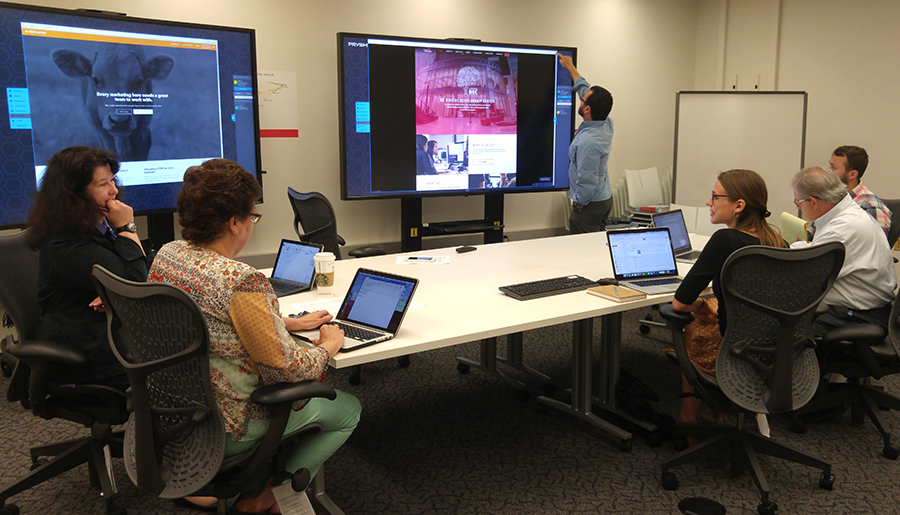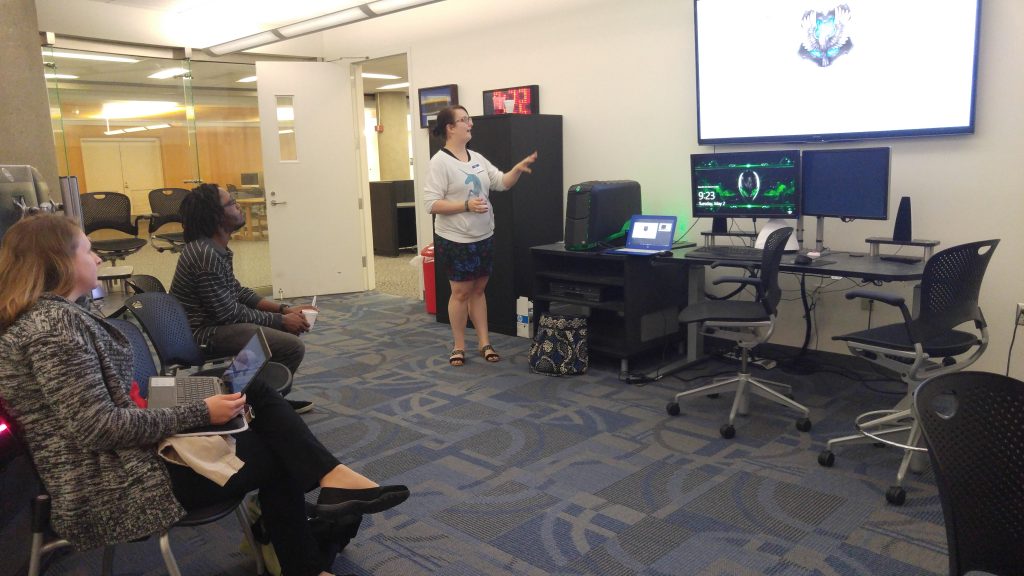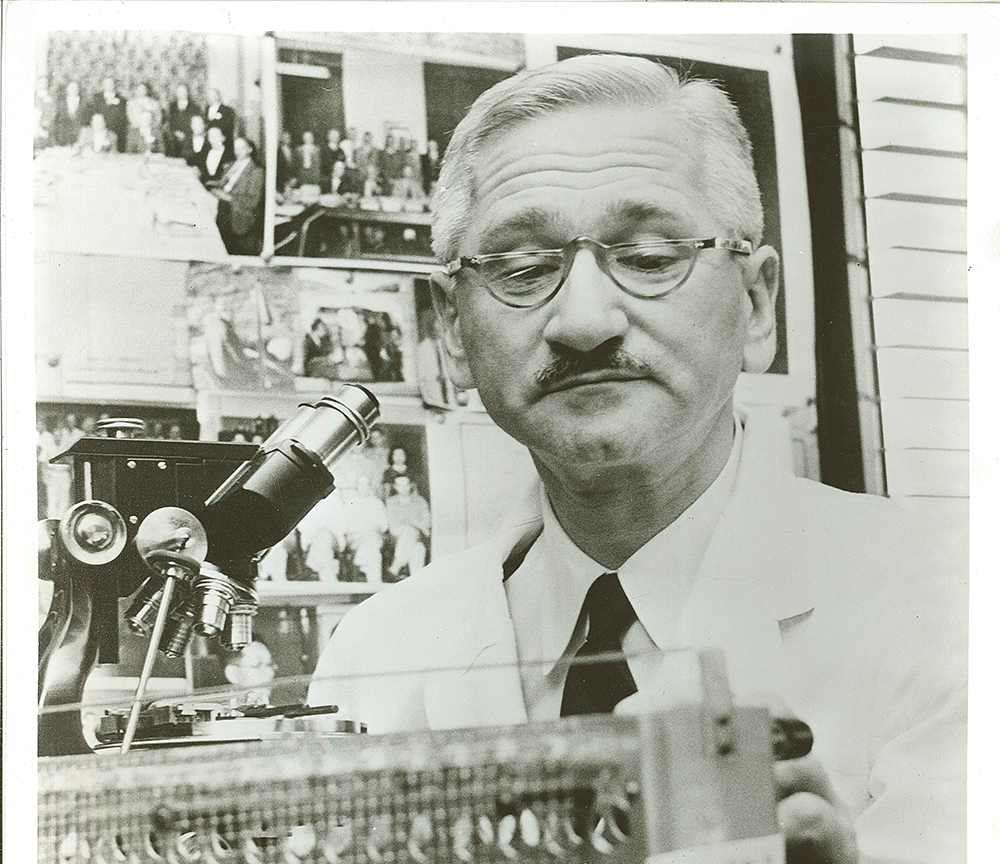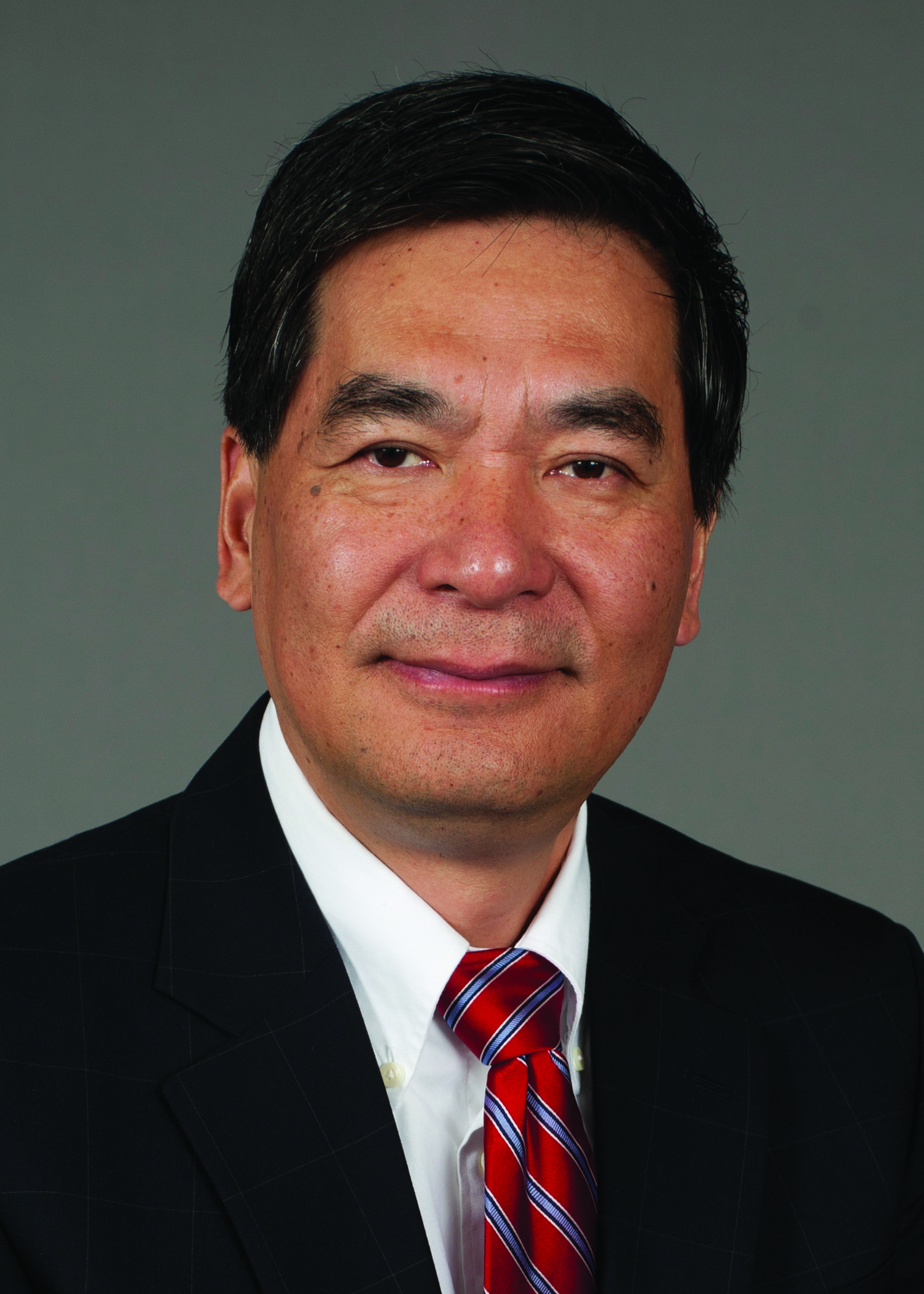
Update on Digital Scholarship Activities
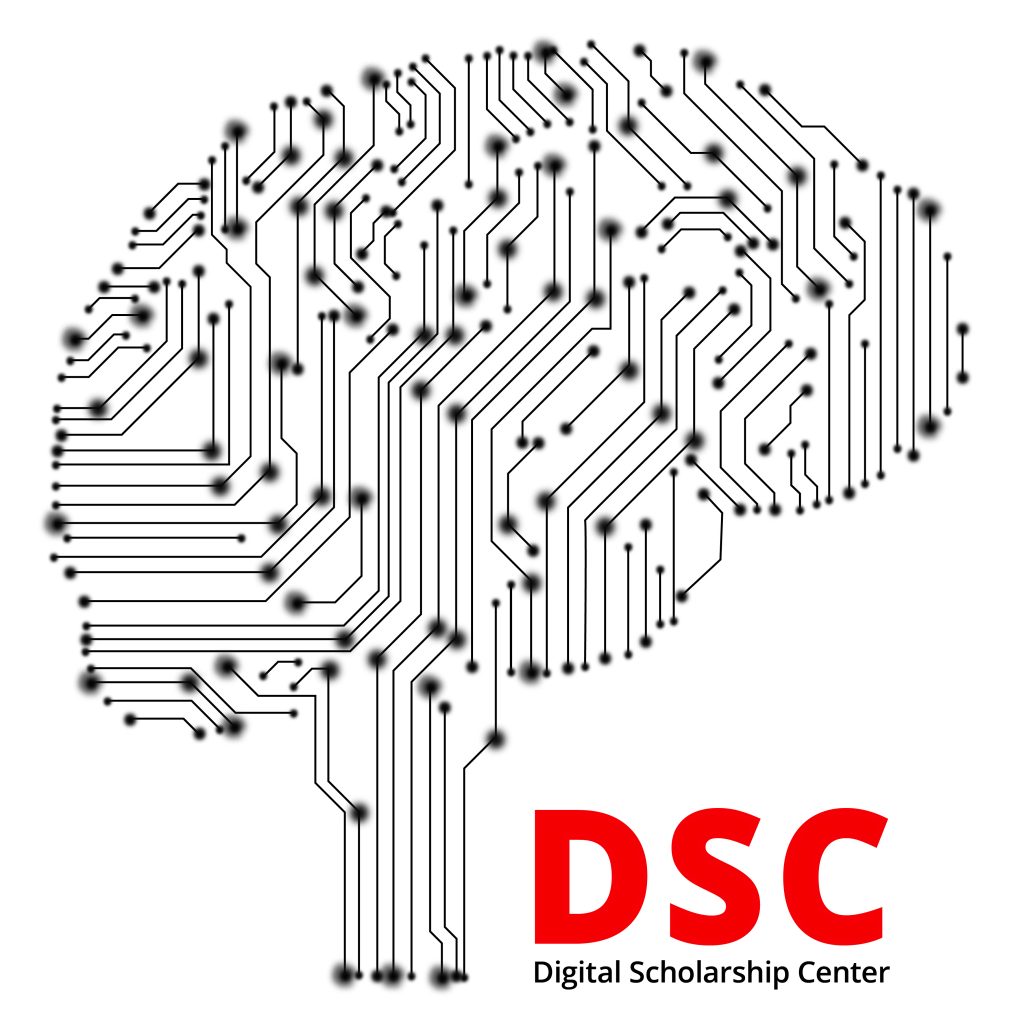 In September 2016, the University of Cincinnati Libraries, in partnership with the College of Arts and Sciences (A&S), announced the establishment of UC’s first Digital Scholarship Center. Located in the Walter C. Langsam Library, the Digital Scholarship Center is a collaborative, technology-enabled space for faculty and group work with hardware, software, and tools to support digital scholarship and pedagogy. On campus and in the community, the Digital Scholarship Center serves as a catalyst for creative hybrid forms of research and teaching, bringing together humanistic methods with technical innovations to test paradigms and to create new knowledge at the boundary between disciplines as they are conventionally imagined in the humanities. Methods such as data visualization, computational text analysis, digitization/imaging/3D modeling, and geographic information systems (GIS), among many other approaches, are used to discover new dimensions of complexity and nuance in humanistic and cultural data sets that conventionally have not been studied.
In September 2016, the University of Cincinnati Libraries, in partnership with the College of Arts and Sciences (A&S), announced the establishment of UC’s first Digital Scholarship Center. Located in the Walter C. Langsam Library, the Digital Scholarship Center is a collaborative, technology-enabled space for faculty and group work with hardware, software, and tools to support digital scholarship and pedagogy. On campus and in the community, the Digital Scholarship Center serves as a catalyst for creative hybrid forms of research and teaching, bringing together humanistic methods with technical innovations to test paradigms and to create new knowledge at the boundary between disciplines as they are conventionally imagined in the humanities. Methods such as data visualization, computational text analysis, digitization/imaging/3D modeling, and geographic information systems (GIS), among many other approaches, are used to discover new dimensions of complexity and nuance in humanistic and cultural data sets that conventionally have not been studied.
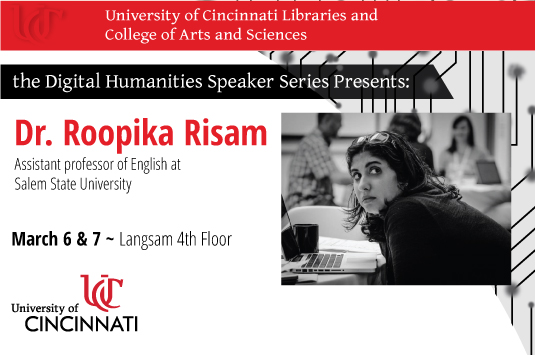 It has been a productive first year for the Digital Scholarship Center. Below are highlights of some of the wide range of research and outreach activities from this past academic year. These publications and activities represent the diverse scope of the Digital Scholarship Center’s multi-disciplinary academic mission.
It has been a productive first year for the Digital Scholarship Center. Below are highlights of some of the wide range of research and outreach activities from this past academic year. These publications and activities represent the diverse scope of the Digital Scholarship Center’s multi-disciplinary academic mission.
- Co-director, James Lee, published two peer-reviewed articles reflecting his dual roles as Shakespeare scholar and digital humanist: one on John Donne and book history in Studies in Philology (https://muse.jhu.edu/article/635915), and a second in Digital Humanities Quarterly on social networks in Shakespeare’s plays (http://www.digitalhumanities.org/dhq/vol/11/2/000289/000289.html). Both articles share a focus on the English early modern period, but use completely different methods – the first is decidedly “analog,” while the second examines the same historical time period using digital techniques and network analysis.
- The Digital Scholarship Center collaborated with Jay Twomey, head of the English Department, on a forthcoming piece in Biblical Interpretation (http://www.brill.com/biblical-interpretation-0) analyzing trends across 25 years of a biblical studies journal.
- The third annual THATCamp University of Cincinnati 2017 was held May 1-3. Over 50 participants shared learned experiences in sessions about: Assessment for Digital Projects, Augmented Reality, Crowd Sourcing/Digital Collection As Data, and Medical Humanities among other topics proposed on the spot.
- UC Libraries, partnering with the College of Arts and Sciences, the College of Design, Architecture, Art and Planning, the Carl H. Lindner College of Business and IT@UC was one of four Provost Technology Innovation Award recipients with the successful proposal “Data Visualization Across Disciplines: Digital Literacy for the University of Cincinnati’s Third Century.” These partners will work together to invest in the development of an interdisciplinary undergraduate certificate in data visualization; training students to communicate complex data by placing it in a visual context. This cross-college program will incorporate coursework designed and team-taught by faculty, blending multiple perspectives on data visualization to a wide range of students.
- The Digital Humanities Speaker Series brought Roopika Risam, assistant professor of English at Salem State University, to campus March 6 and 7 where she presented a series of talks and hands-on workshops. Her keynote lecture asked, “Who Lives, Who Dies, Who Tells Your Story: The Stakes of Digital Cultural Memory.”
- James Lee, assistant professor in digital humanities with a specialization in early modern English literature, presented November 1 as the fall expert in the Digital Humanities Speaker Series. His talk, “A Digital History of Race before Empire: Mapping a Global Renaissance with 53,829 Texts,” showed how to apply digital humanities to historical data sets.
- The Digital Scholarship Center has engaged A&S and the Graduate School to support four graduate student assistants (English, professional writing, creative writing, business analytics) to perform research applying machine learning and data visualization techniques on large unstructured data sets like the Twitter historical archive, the Elliston poetry archive and the PubMed scientific database.
- The Center received a Collaborative/Interdisciplinary Professional Development Award from the Office of the Provost. Co-director Arlene Johnson’s proposal Strengthening Faculty Research and Engagement in the Digital Humanities across UC: A Proposal for Faculty Development Funding Support to attend the 2017 Digital Humanities Summer Institute (DHSI) made it possible for a cohort of UC faculty to attend the annual event. A time of intensive coursework, seminars and lectures, participants at DHSI shared ideas and methods, and developed expertise in using advanced technologies. Every summer, the institute brings together faculty, staff and students from the arts, humanities, library and archives communities as well as independent scholars and participants from areas beyond.
After laying the groundwork in this first year as an academic center, the Digital Scholarship Center will concentrate their efforts next year on continuing to build relationships across campus, but will also shift into a “product” mode, transforming projects into research, teaching and service products/deliverables.
